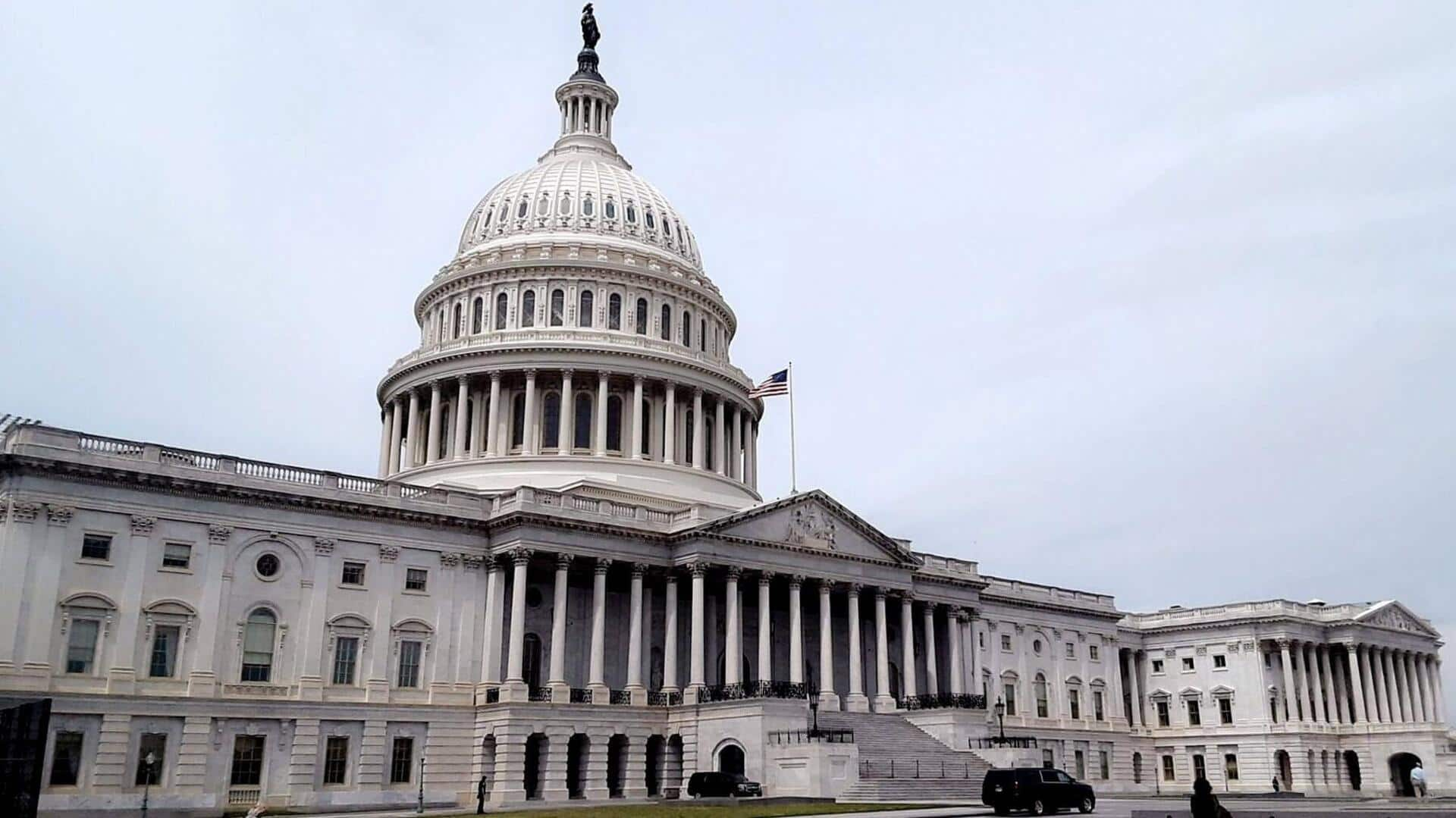
US to criminalize revenge porn, AI deepfakes
What's the story
The US Congress has passed a landmark legislation, Take It Down Act, which seeks to ban non-consensual intimate photos and videos from online platforms.
The bill, which was overwhelmingly supported in the House with a 409-2 vote on Monday, was unanimously passed by the Senate in February.
It is now awaiting President Donald Trump's signature to be enacted into law.
Legislation details
Non-consensual images will be removed within 48 hours
The Take It Down Act would require social media platforms to remove such non-consensual images (including revenge porn and AI deepfakes) within 48 hours of being notified.
It also criminalizes intentionally publishing such intimate visual depictions.
This is a landmark step toward protecting victims of online abuse and holding perpetrators accountable for their actions.
Sponsor statements
'Must provide victims of online abuse with the legal protections'
Senators Amy Klobuchar and Ted Cruz, the bill's leading sponsors in the Senate, have emphasized the need for the legislation.
Klobuchar said in a statement, "We must provide victims of online abuse with the legal protections they need when intimate images are shared without their consent," especially as deepfakes opened up new avenues for abuse.
Cruz added, "By requiring social media companies to take down this abusive content quickly, we are sparing victims from repeated trauma and holding predators accountable."
Presidential support
First Lady Melania Trump supports the legislation
First Lady Melania Trump has also voiced her support for the act.
She went to Capitol Hill in March to push for its passage, calling its approval "a powerful statement that we stand united in protecting the dignity, privacy, and safety of our children."
The First Lady is expected to be present when her husband signs this bill into law.
Terms
Understanding revenge porn, AI deepfakes
Revenge porn refers to the leaking of sexually explicit images or videos of individuals without their consent, usually done as a punitive step to publicly humiliate and harass victims.
AI deepfakes go a step further by morphing individuals' images and videos to denote something else.
While both these issues affect every section of society, young girls and women are mostly the targets of these offences.